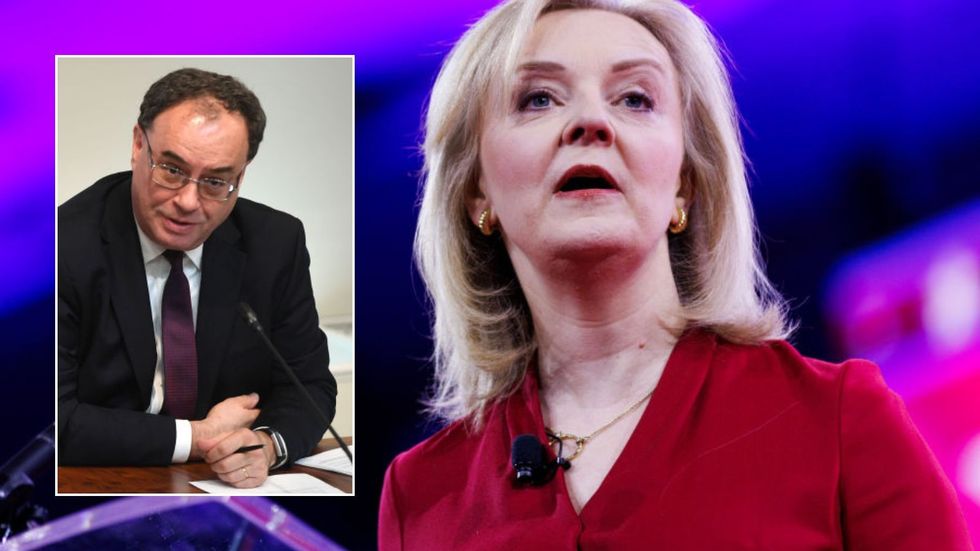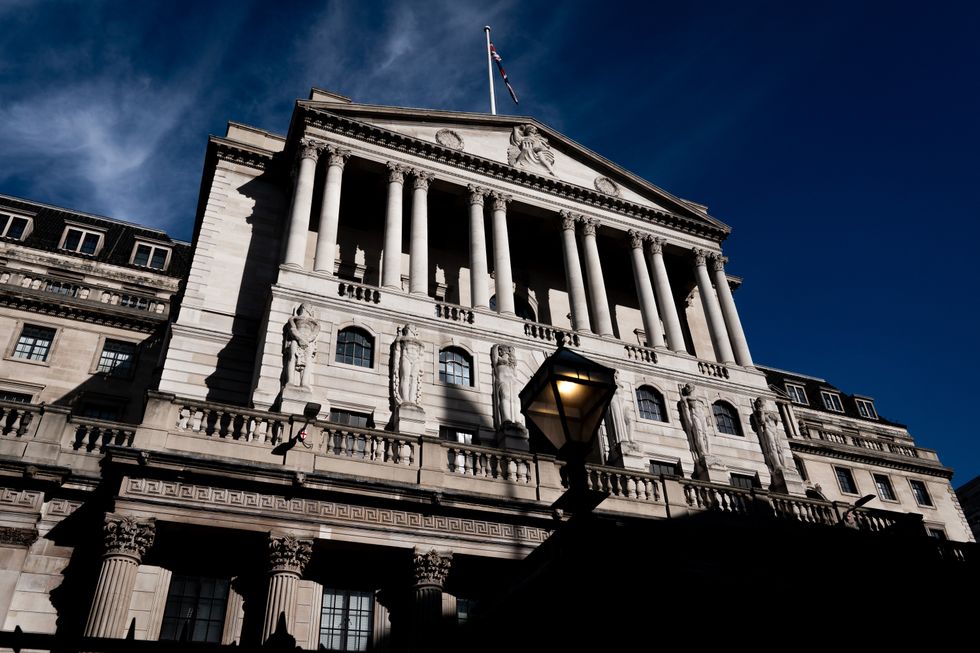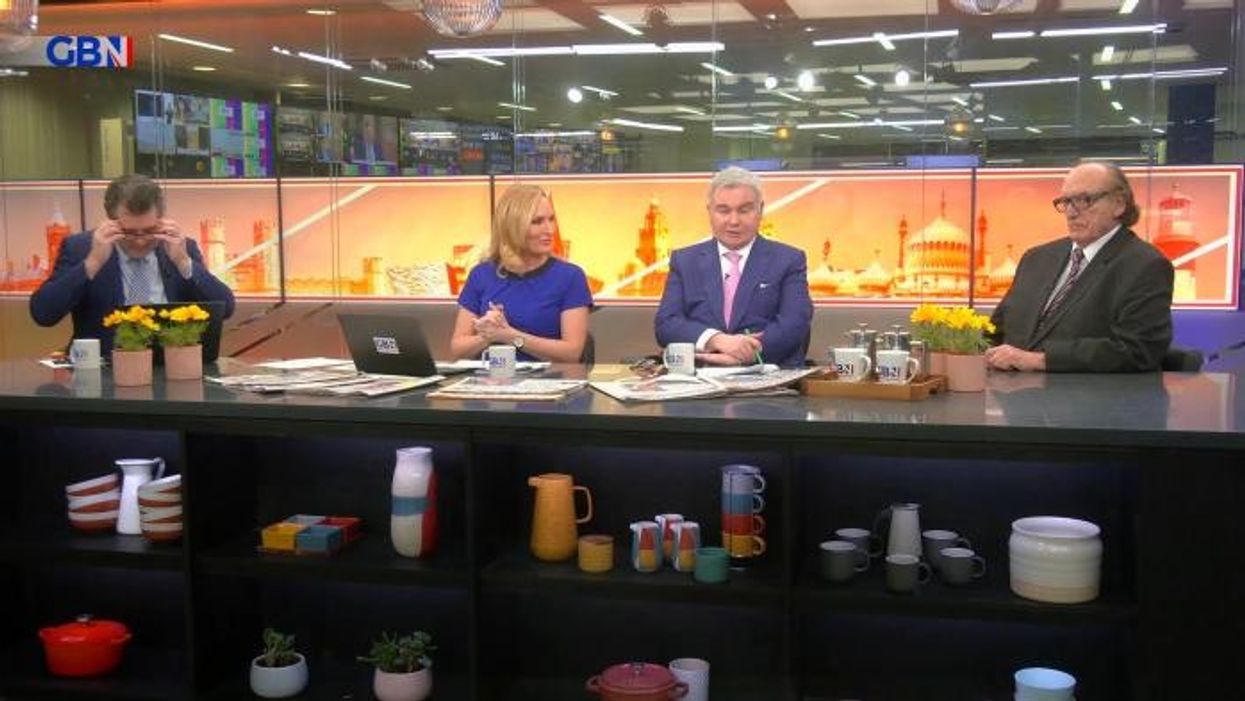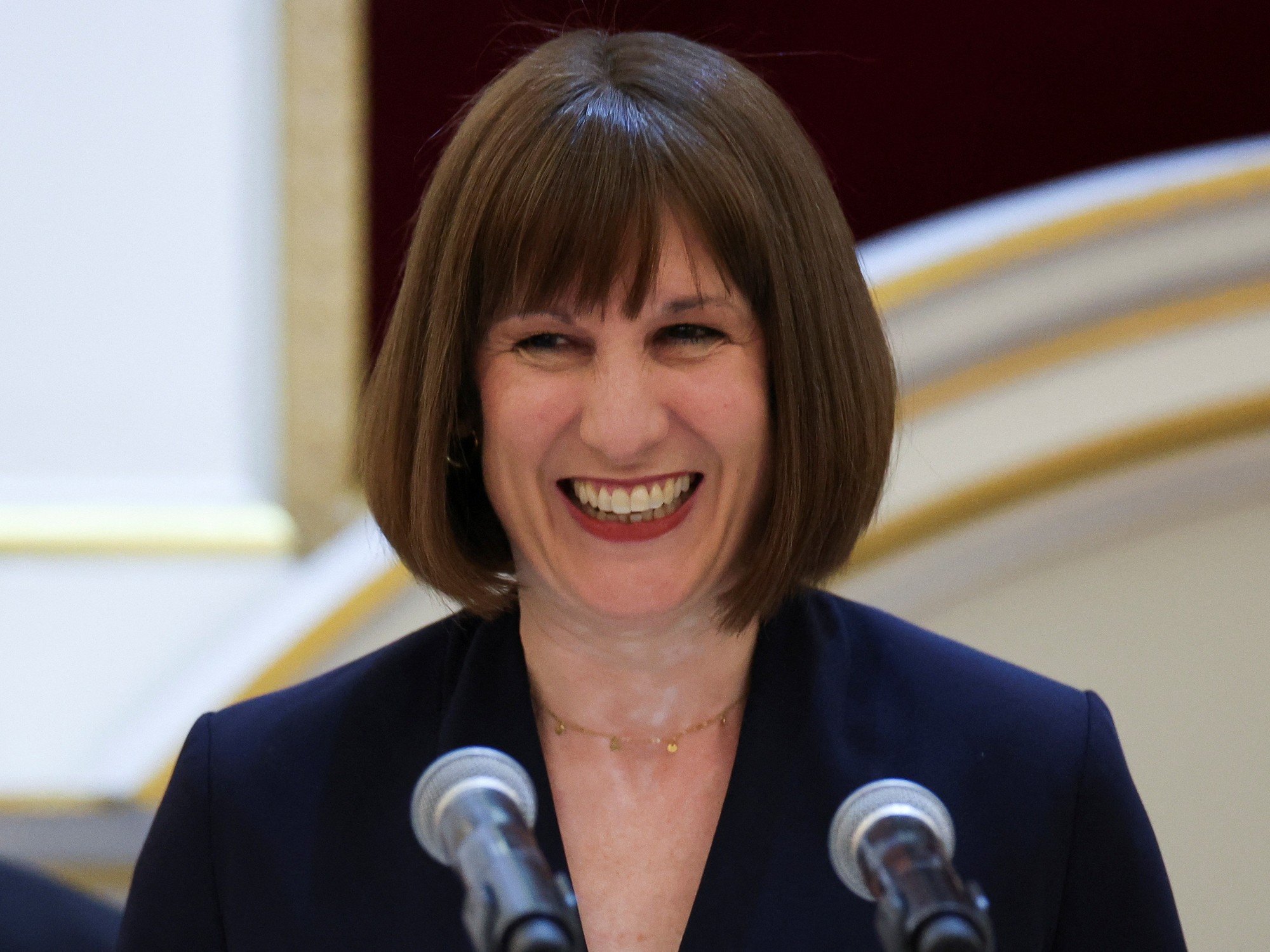The ex-Prime Minister has called for Government to have more control over policies set by the central bank and its governor Andrew Bailey
Don't Miss
Most Read
Trending on GB News
The head of the Bank of England should resign following his response to the 2022 mini-Budget, former Prime Minister Liz Truss has suggested.
Andrew Bailey, the central bank's current governor, is under fire from the ex-Conservative Party leader as she claims political opponents are "smearing" her record in Number 10 Downing Street.
According to Truss, elected ministers should have more control over the policy direction set by the Bank of England and who is in charge of it.
Her tenure as Prime Minister lasted only 49 days after her administration's mini-budget triggered mass market turmoil.
Speaking to LBC in an interview that is due to be broadcast tonight, Britain's short-serving Prime Minister claimed "the left" and other opponents had attempted to “smear” her by blaming the fiscal event for the country's economic issues.
Truss is currently doing media rounds ahead of the publication of her book, Ten Years to Save the West.
Do you have a money story you’d like to share? Get in touch by emailing money@gbnews.uk.

The former Prime Minister has called on reform of the Bank of England's powers
GETTY
When asked if Bailey should remain as governor of the Bank of England, the former prime minister said: “No, I don’t."
She explained: "I certainly think there should be a proper investigation into what happened in September 2022, and the actions the Bank of England took.
“The difficulty is the way that (former Labour prime minister) Gordon Brown set up the independence of the Bank of England in the statute books means it’s very hard to move a governor of the Bank of England on,.
"But I think big mistakes have been made with monetary policy.”
The right-wing politician cited UK interest rates being “too low for too long” as to why the country's economy has run into trouble.
Furthermore, Truss noted that decisions to pump money into the economy following the 2008 financial crash and the Covid pandemic, referred to as quantitative easing, had “done a lot of damage”.
Despite her calls for the governor to resign, she said she was not pushing for the Chancellor of the Exchequer to be given full control over interest rates.
Prior to the COVID-19 pandemic, the Bank had kept interest rates at a low level but has since raised the base rate in an attempt to bring inflation down.
As it stands, interest rates have been raised and held at 5.25 per cent since August 2023 with a cut expected to take place later this year.
“What’s now happening is the Bank of England is managing monetary policy and fiscal policy is having to follow," Truss added.
LATEST DEVELOPMENTS:

The Bank of England's decisions over interest rates are under fire
PA"Fiscal policy has (been) straitjacketed because it’s the Office of Budget Responsibility (OBR), yet another independent body that set the parameters. And I think you’ve got to ask, is that really democratic?”
Other proposals put forward by the MP for South West Norfolk include “seeing the back” of the OBR, the watchdog which estimates the results of Government tax and spending decisions.
During her book tour, Truss has constantly defended her record in office as experts, political opponents and much of the general public have blamed the mini-budget on the UK's economic woes.
“What they’re saying is not borne out by the facts. It’s a smear, it’s a smear,” she shared with LBC.









